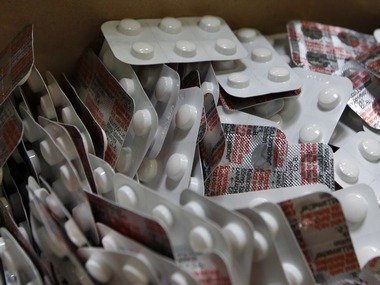The heat created by the Glivec patent case is refusing to settle. Days after the landmark judgement was passed, discussions are still on about its likely impact on the future of affordable healthcare.
The Big Pharma and its lobby group apart, most of the commentators have hailed the verdict. One article has termed the verdict a “celebration of law and power of law to create freedom, creativity and responsibility”.
An editorial in the Economic and Political Weekly said the judgement is “one of the most significant verdicts on patent law in independent India”.
[caption id=“attachment_695448” align=“alignleft” width=“380”] Only a few companies in India have the financial muscle to engage in a long and protracted court battle over patents with the Big Pharma. Reuters[/caption]
“That it has come at a time when the pharmaceutical industry is once again tending towards tight “oligopolisation” and high prices, which was the case before 1972 when the country had pharmaceutical product patent protection, is all the more welcome,” it said.
But not all are sure about the impact on the future of healthcare.
According to a report published in The Economic Times Magazine on Sunday, the Glivec judgement is likely to change nothing much on the ground.
This is because the judgement is merely a reinforcement of the Section 3(d), which the Indian generics industry had fought hard to include in the Indian Patents Act when it was amended for the third time in 2005.
Impact Shorts
More ShortsThis section states that inventions that are a mere “discovery” of a “new form” of a “known substance” and do not result in increased efficacy of that substance are not patentable.
The ruling is not going to “herald a return to the old days before the patents law was changed, when new product launches from Indian companies were a dime a dozen”, said the article by Gauri Kamath, who runs the blog Apothecurry.
And moreover, only a few companies in India have the financial muscle to engage in a long and protracted court battle over patents with the Big Pharma, the article said.
Even the assumption that the judgement will result in more voluntary licencing deals between MNCs and generics is also wrong, the article said. Indian generics companies, meanwhile, will have to grapple with more serious challenges like falling number of drugs going off patent in the West, it said.
Whatever the long-term outcome of the judgement, a new patent battle between Glenmark and Merck is adding fuel to these debates.
According to media reports, US drug maker Merck’s arm MSD India has sued Indian firm Glenmark for infringing its patent on two diabetes drugs, Januvia and Janumet.
According to a Reuters report quoting an industry source, Januvia costs nearly Rs 1,300 for a month’s dose while Glenmark has offered the drug at a discount of about 30 percent.
MSD has sought an injunction against Januvia sales by Glenmark on the pretext that the US company still holds the patent for the two drugs.
The Delhi high court last week had denied an interim relief to MSD on the plea, as the company had not made out a case for such a relief.
According to a Times of India report today, the court case is an attempt by the Big Pharma to pressure the government to not give marketing approval for generic versions of drugs that have been accorded patent in India. This is called patent linkage, the report said.
The Indian Pharmaceutical Alliance (IPA), the body of domestic generic firms, has claimed that the present laws conform to the TRIPS Agreement and any demand for additional provision is an attempt to “raise the bar for generic entry and delay competition”.
“It will adversely affect access to medicines in India as well as other developing countries,” IPA secretary general D G Shah has been quoted as saying in the ToI report.
Linking patent and marketing approval has been a long pending demand of the multinational pharma companies. If this is done, the Drugs Controller General of India, who okays sales of medicines, will also have to deal with patent issues.
According to the report, a case on patent linkage between Bayer and Cipla is already pending before the Supreme Court.
According to Shah of IPA, even the European Union has not linked patents to marketing approvals and India too shouldn’t give in to MNCs’ unreasonable demand.
One of the countries where patent linkage existed in Europe was Italy. In January 2012, the European Commission had asked Italy to remove the link between patents and generic medicines authorisation.
“As a result of this (patent linkage) law, and of the lengthy procedure to secure the authorisation for marketing, manufacturers of generic products are placed at a disadvantage on the market,” the EU press release had said.
This is from the corporate point of view. In India, however, the issue is more about accessibility to medicines.
Especially so in the case of Januvia and Janumet, as they are used for treating diabetes, a disease which 65 million Indians suffer from.


)

)
)
)
)
)
)
)
)



